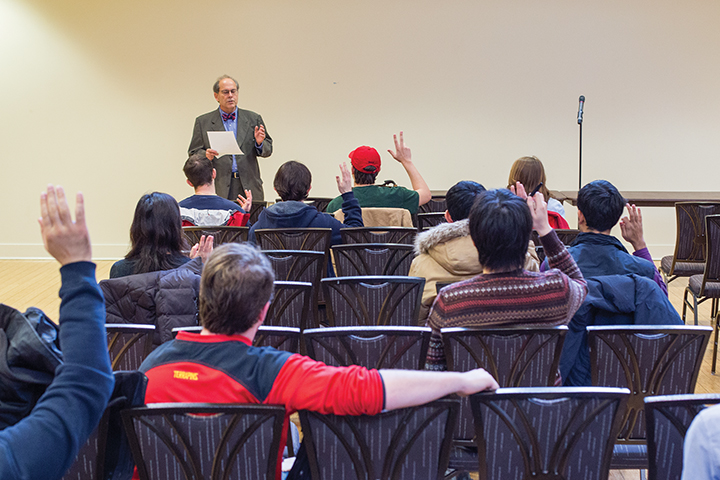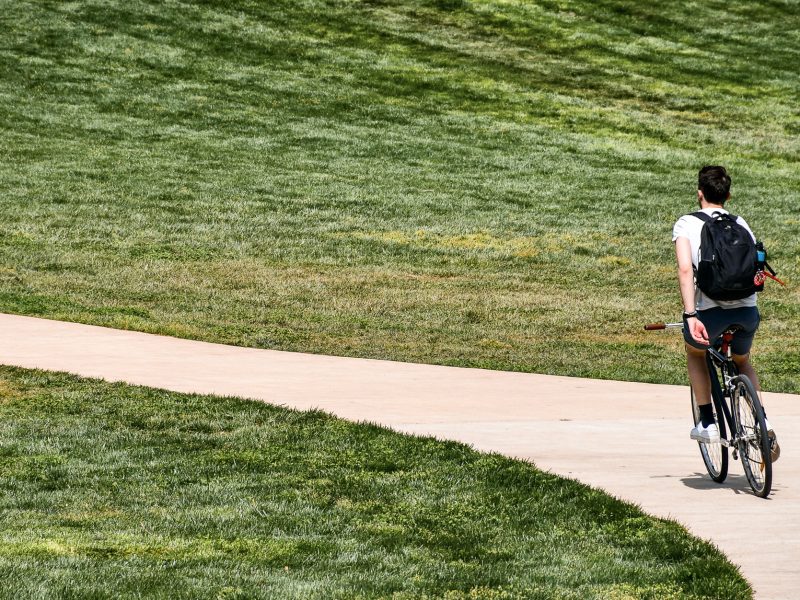Junior Valerie Pavlov said she has seen firsthand how important it is to know your rights as a student at the University of Maryland. This week, other students will have the opportunity to learn about those freedoms as well.
This university is hosting its first “Know Your Rights Week,” a weeklong campaign hosted by MLaw Programs, the Student Government Association, the Graduate Student Government, the Graduate Student Legal Aid Office and the Undergraduate Student Legal Aid Office.
Students are sometimes unaware of what is expected of them when interacting with police, what rights apply to the situation and what to do after the encounter, said Stenise Sanders, director of the Graduate Student Legal Aid Office.
One of the sponsored events was a “Police Encounters” seminar held Tuesday in Stamp Student Union. Officials answered questions about students’ rights when it comes to dealing with police officers.
Sanders said he has seen issues with students not knowing whether they are required to answer officers’ questions, what to say if officers search their cars or dorm rooms, and what to do if they do not have their drivers’ licenses.
Attorney William Salmond, who founded the Student Legal Aid Office in 1976, returned to this university to discuss the nuances of police encounters.
Salmond said he most often sees students involved in police encounters in four locations: off the campus, in dorms, in cars and at pedestrian stops.
“These encounters are going to happen more and more frequently with the police because of the expansion of university jurisdiction,” Salmond said. “The sad reality now is that the university has jurisdiction just about everywhere. I think it’s going to become a question at one point as to whether the constitutionality of that jurisdiction is well placed.”
Although there are many important considerations during a police encounter, Sanders said the easiest thing anyone can do is “[not] be a jerk.”
“Be responsible, respectful and polite,” Sanders said. “If you give police officers a hard time, I promise you they’re going to give you a hard time.”
Pavlov, an economics and government and politics major, said being a resident assistant has made her realize it is important for students to know their rights.
“[Salmond] brought up a lot of points that I hadn’t thought of, like what your rights are in the residence halls,” Pavlov said. “I have seen instances where residents not knowing their rights let police officers in, and it’s worse for them in the future.”
James Dottin, a third-year graduate student studying geology, said he attended the event because of recent media scrutiny of police.
“It will be good to know how to interact with police and understand where they’re coming from, because that’s their job,” Dottin said.
Other topics to be discussed this week include academic integrity on Wednesday, and the Student Code of Conduct and Title IX on Thursday, said Syndy Shilling, director of the Undergraduate Student Legal Aid Office.
“We were really going for topics that we thought both undergraduate and graduate students would be interested in,” Shilling said. “We thought it would be really important for students to know some of their basic rights.”



